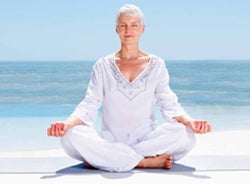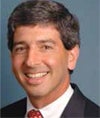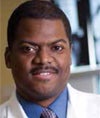Managing Stress
Find a Cardiologist to Help You
Onto Your Path to Heart Health
Overhaul Your Body
You can improve your overall physical health with proactive, permanent changes. Whether it’s eating better or moving more, the key is to change it up to feel better and achieve a healthier you.
Becoming more active will burn calories, increase metabolism and decrease stress. The more active you become, the better your body will be able to deal with physical stress, which in turn decreases the need to release cortisol.
Cortisol is a steroid hormone that is naturally released in the body in response to stress. As part of the “fight or flight” response, it increases the flow of glucose from the body’s tissues into the bloodstream to provide extra energy to handle a stressful situation.
If stress is mental or emotional, with no physical component, then we don’t burn the energy provided by the surge of cortisol. Instead, that energy is stored in the abdomen, stimulating the growth of fat cells.
Active people also have a lower cortisol response to emotional stress.
Beyond controlling cortisol levels, there are other benefits to leading an active lifestyle. Active individuals are more likely to see a decrease in their heart rate and blood pressure, higher HDL (good cholesterol) levels and lower triglycerides. In addition to being heart healthy, an active lifestyle also increases lean body mass and bone density and decreases the chances of developing osteoporosis.
To achieve a healthier, more active lifestyle, the changes don’t need to be drastic. Little additions of movement and exercise can make an impact on health. Good ways to incorporate these changes into your daily life include:
- Take the stairs instead of the elevator.
- Park farther away in parking lots.
- Get up from the desk or TV periodically and walk around.
- Do home activities like cleaning, gardening or yard work.
- Walk the dog.

Getting in between 7,000 and 10,000 steps per day may sound like a daunting aspiration, but adding little activities can go a long way to achieving that goal.
People who take at least 7,000 steps/day have a 50-70% lower mortality rate than those taking less than 7,000 steps/day.
Making one change at a time and building on that works well for most people. People often notice a difference after about three weeks of making these changes.
Mental Overhaul
Clearing your mind beyond physical clutter is all about keeping the “pie of life” balanced, said Yancey. He identifies six facets of life that are the foundation of a healthy mind:
- Physical – Making time in your schedule to exercise can help you think more clearly and have more energy.
- Emotional – Loneliness can be stressful, so forming meaningful relationships with family and friends and developing a sense of community can help lessen stress.
- Intellectual – Challenge the mind to grow by reading interesting material or losing yourself in a hobby. We can all be adult learners.
- Sensual – Touch is an important part of life.
- Spiritual – Being connected to something larger than yourself can help with comfort, support and priorities.
- Work – It’s not just about pay and benefits. Feeling appreciated and that your contributions are valuable is a big part of a healthy mind. Even in retirement, finding a way to contribute and stay connected to others is fulfilling.
Balancing the pie of life often begins with learning where to draw the line when it comes to commitments.
Yancey said most people can tell if their life is in balance or out of balance with some basic questions about their level of fulfillment in those six areas, but making the changes necessary can sometimes be a challenge.
“Sometimes it feels like it would be an additional stressor to rebalance the pie of life,” confirms Yancey. “It would be stressful, for instance, to implement exercise, but beneficial in the long run. An unbalanced life is stressful, even if it seems easiest because the change can be difficult.”
But Mangano cautions to keep the changes in perspective: “Try not to make too many big life changes all at once, for example: downsizing a home, new job, new spouse and new financial ventures.”
In some cases, people might find it necessary to reach out to a professional for motivation. “For instance, Healthworks has personal trainers who enjoy the challenge of helping persons reach their fitness goals; or if a person consistently feels relationships go south, then a counselor might be helpful in exploring the dynamics involved,” offers Yancey. “What we don’t learn from, we tend to duplicate.”
There are many tools that can be used to create mindfulness, like journaling or meditation. But Yancey explains friendship is an undervalued facet of mental health. “Friends help us process the stuff of life, like having things in common such as parenting teens and caring for older parents.”
Consult a Cardiologist
Whether it’s cleaning out a junk drawer or coping with emotional stress, what strategies do you suggest for your patients when it comes to de-cluttering stressful areas of their lives?
Marc Silver, MD | WakeMed Heart & Vascular
I always recommend making lists when I feel overwhelmed. I put check boxes next to each one after prioritizing the list. It’s amazing how life seems more under control when you see yourself making progress in areas of your life that seem overwhelming.

Kirk Charles, MD | WakeMed Heart & Vascular – Vascular Surgery
- Prioritize your tasks from “important” to “can wait. Try to address them in that order.
- Get help when possible to offload yourself.
- It’s okay to say “No.” Don’t take on more than you can handle. Your efficiency will soar and your results will be better.
- Don’t worry about what you can’t control.
- Try to enjoy what you do.
